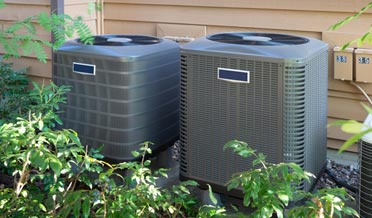HVAC Installation: How Long Should Your HVAC System Last
After a homeowner sign on the dotted line and assumes a mortgage for the family home, the serious business of home ownership begins. The building envelope, finishes, and building systems (electrical, plumbing, and HVAC) become the responsibility of the owner(s).
Both maintenance and replacement schedules fall upon the owner, whether he or she is prepared or not. Let’s look at issues that affect the maintenance, repair, and replacement schedule for a residential HVAC system.
All mechanical systems, including both automobiles and HVAC systems, have a limited lifespan, will require maintenance, and repairs, and will eventually need to be replaced. Steps can be taken to lengthen the number of useful years for any HVAC system. Some essential details about HVAC systems will help homeowners make wise decisions about all HVAC matters.
HVAC Installation Lifespan Information
The term “lifespan” refers to an estimate of years of mechanical usefulness, not to an expiration date. The lifespan of an HVAC system is determined by many variables, including:
- The air conditioner/heat pump components of an HVAC system have more complex components and control mechanisms, including a compressor pump that squeezes a refrigerant gas several times per heating/cooling cycle.The number of sensors and switches that govern air conditioner activities. For these reasons, heat pump components tend to wear out more quickly (about 15 years) than furnace components do (about 20 years).
- The burning of natural gas (or propane) furnace systems creates chemical byproducts corrosive to the iron of burners and heat exchanger walls. The corrosion may require part replacement and if ignored can lead to premature replacement.
Maintenance Factors
Every mechanical system needs maintenance since contamination and wear reduce performance efficiency. Two aspects of maintenance stand out:
- Changing the air filter frequently—at least every 3 months is extremely important for longevity. Clogged air filters put incredible stress on the healthy air conditioner and heater components, forcing expensive repairs and early replacement.
- Inspection, cleaning, and maintenance—at least once annually remove contaminants that reduce efficiency.
- Maintenance is customized to meet the needs of the existing system: heat pump, gas-powered heat, and electric element components have unique maintenance needs. Blower motors and thermostats are common to all systems.
- Timely repairs greatly impact longevity. Failures tend to create a cascade effect, so catching a problem when it is small prevents further major repairs.
Regularly scheduled maintenance extends the useful life of HVAC systems by about five years.
Installation Factors
Both the quality of the initial installation and subsequent installations of replacement systems have an impact on longevity and efficiency.
- Most of the ductwork of the home is covered after installation. Repairs or replacement of these building parts is usually very expensive, so “getting it right the first time” is very important. Leaky ducts will cost money every single year.
- Sizing the HVAC system is extremely important: systems that are either too large or too small create excess wear and shorten the lifespan of the system.
Usage Factors
A major determinant of useful life is wear and tear, partially a result of the number of hours in use.
- How many heating or cooling cycles per hour are primarily governed by the local climate; responding to extremely hot or cold temperatures reduces the lifespan of HVAC systems.
- Insulation and sealants in the building envelope affect efficiency and how many cycles are needed per hour/day/year.
- Comfort preferences by family members will also affect the number of cycles. Constantly changing the temperature setting decreases efficiency and shortens useful life.
If would you like more information about HVAC Installation, Doctor Cool Can Help!
Let Doctor Cool help with your HVAC Installation questions. Call Doctor Cool & Professor Heat today at 281-338-8751 or email Doctor Cool.
